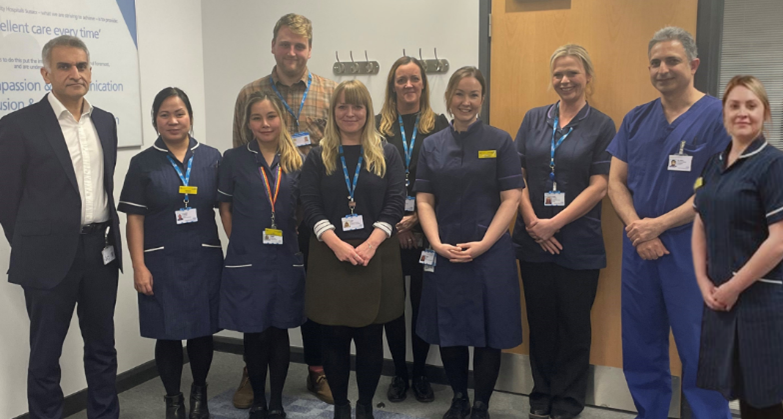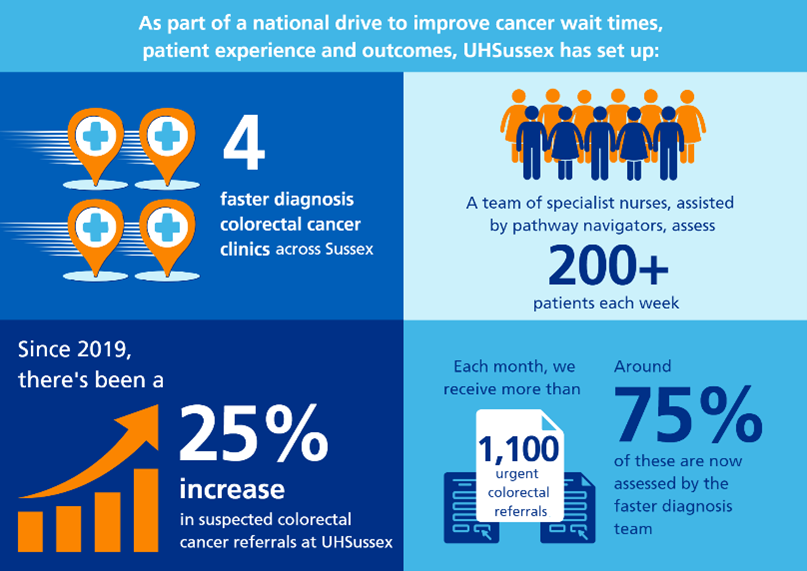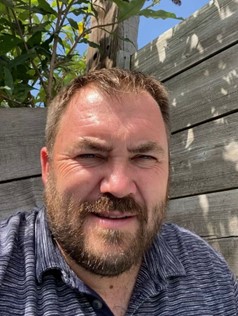
Colorectal faster diagnosis team for Worthing and St Richard’s hospitals
More than 200 patients, each week, with suspected colorectal cancers are now assessed in new faster diagnosis clinics across Sussex, helping to address the growing demand for the service.
Since 2019, there has been a 25% increase in suspected colorectal cancer referrals at University Hospital Sussex NHS Foundation Trust (UHSussex), which now receives more than 1,100 urgent referrals each month.
As part of a national drive to improve cancer wait times and patient experience, the Trust has set up faster diagnosis colorectal cancer clinics across its four hospital sites.
Each clinic is led by a consultant and has a team of specialist nurses and pathway navigators.
The nurses use stool test results, which in most cases are sent from the patient’s GP, to determine whether cancer can be ruled out or more investigations are needed.
The team of specialist nurses, assisted by the pathway navigators, review and assess more than 75% of patients who are referred with suspected cancers of the lower gastrointestinal tract.

Mr Syed Mohammed Ali is a Consultant Colorectal and General Surgeon at St Richard’s Hospital. He said: “These clinics help us to identify and prioritise patients who have cancer and give them the chance for early treatment.
“Those who do not have cancer can have their mind put at ease as quickly as possible by the nursing team. It also means we can focus our services delivering them to routine and non-cancer patients alike.”

Terry King, 44, from Brighton, was recently diagnosed with colon cancer following referral to the faster diagnosis team at the Royal Sussex County Hospital.
He said: “I have been suffering with abdominal pain for a while, so I made an appointment to see my GP, who did some tests and referred me to the hospital team. The whole process from being seen at my GP surgery and having tests to being referred and diagnosed has been so quick and I only have praise for the NHS.
“Within a week of my phone call with the hospital nurse, I was booked in for more tests. I was told it was a cancerous tumour during one of the tests. At every step of the way, I was told what to expect and received loads of information to support me.
“Even after I met the consultant to talk through the diagnosis and treatment plan, the nurse rang me to talk through everything. I have never felt left behind or forgotten about. It’s helped me stay positive about the future, knowing that I’m being cared for so well.”
The NHS faster diagnosis standard aims for patients to be diagnosed (with or without cancer) within 28 days of urgent referral.
Dominic Clarke, Divisional Director of Operations for the cancer division said: “Nationally, because of high demand for colorectal services, only about 40% of patients with suspected lower gastrointestinal tract cancers are being diagnosed within the standard time frame.
“Thanks to our faster diagnosis clinics, we are reaching more than 60% in some of our clinics, which is an outstanding achievement. And we expect this to improve further from next month as we increase the number of our clinics that are able to run at full capacity.”
Lisa Barrott is the Divisional Director of Nursing and Allied Health Professionals for the cancer division.
She said: “Getting these services up and running is a huge testament to the hard work and dedication of our teams and collaborative working with partner organisations including the Surrey and Sussex Cancer Alliance and primary care colleagues.
“The nurses, with support from the pathway navigators, are not only helping to streamline the diagnostic pathways, but they are also providing a level of holistic care and support to patients on them that was not possible before their roles were introduced.”
The teams at UHSussex have worked closely with the Surrey and Sussex Cancer Alliance, who have helped shape the pathway and funded the pilot projects.
The Trust is now establishing a series of faster diagnosis clinics for a range of other cancer types.